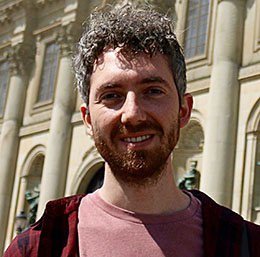Title: Motion control for legged robots: robustness, viability and hardware design

Andrea Del Prete
University of Trento, Italy
Abstract
In the last 10 years optimization-based control (e.g., trajectory optimization) has become the most common technique for motion control of legged robots. Despite the remarkable ability to account for the constraints of these systems, current optimization-based techniques are still brittle and require lots of tuning to work on real robots. I believe that to overcome these issues we should look at robustness, viability, and hardware design. In this presentation I will preset my recent work on these subjects, and discuss what I plan to do in the coming years.
Biography
Andrea Del Prete is an Assistant Professor in the Industrial Engineering Department of the University of Trento (Italy). He holds a degree in Computer Engineering (with honors) from the University of Bologna. In 2013 he received his PhD from the Cognitive Humanoids laboratory, Italian Institute of Technology, Genova. From 2014 to 2017 he had been an associate researcher at LAAS-CNRS in Toulouse (France), working on the humanoid robot HRP-2. In 2018 he had worked as a research scientist at the Max Planck Institute for Intelligent Systems, in Tuebingen (Germany). His research focuses on the use of optimization algorithms for control, simulation, planning and estimation of legged robots.
For more information, links to papers and videos visit Andrea Del Prete's personal website .